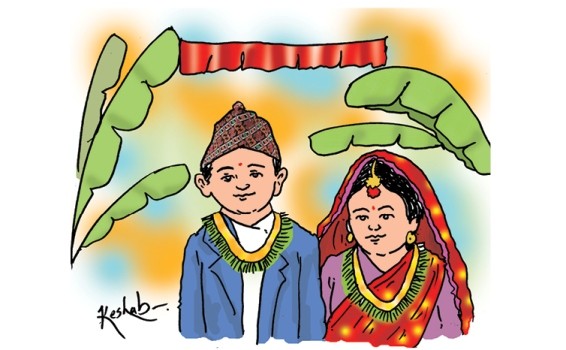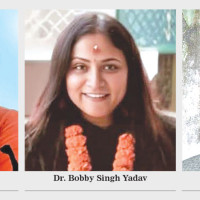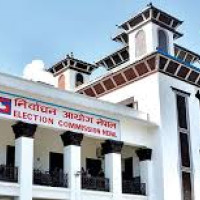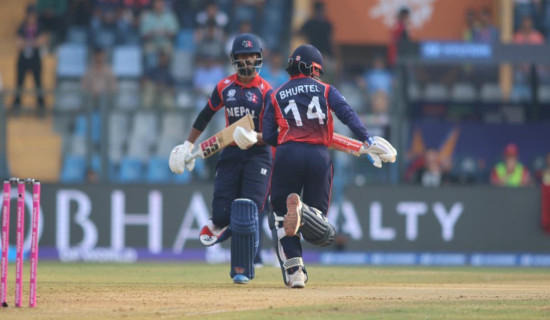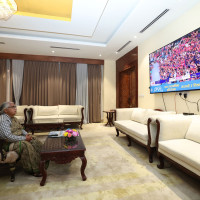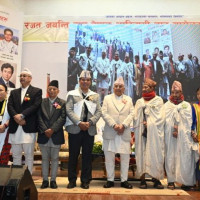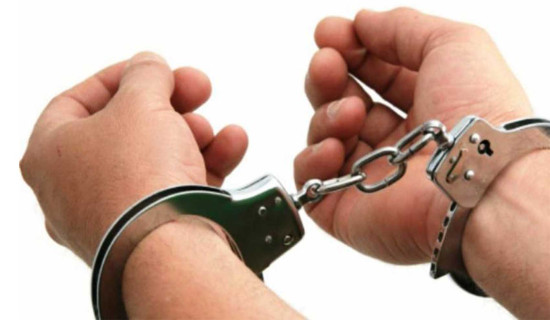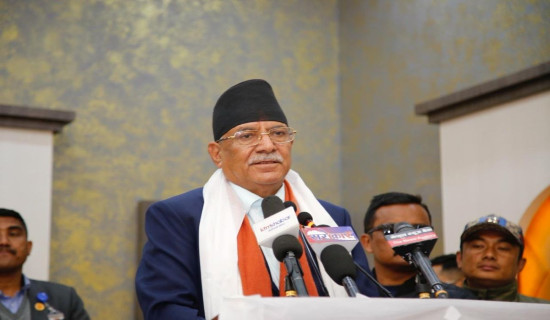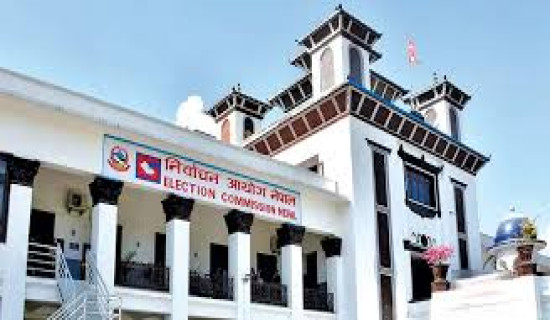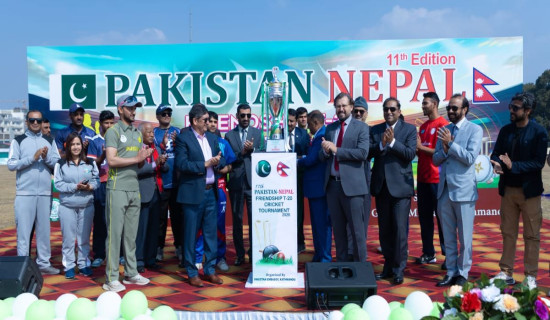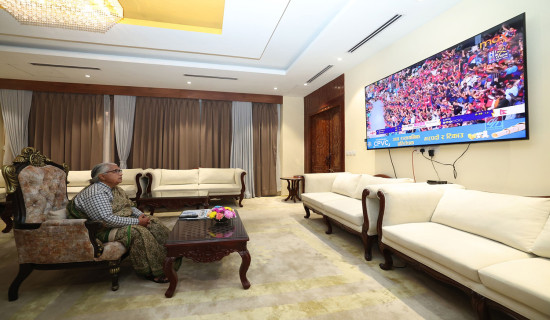- Monday, 9 February 2026
Collective commitment to prevent child marriage in Madhes
Mahottari, April 5: Various stakeholders have expressed their shared commitment to end social anomalies such as child marriage and dowry propping up as a key challenge in Madhes.
The participants at a discussion
'Role of religious preachers for ending child marriage' held in Bardibas on
Thursday expressed collective commitment to play lead role in preventing child
marriage in their areas.
In the discussion organized by
Madhesi Commission in collaboration with the Plan International, Madhes Province
Assembly Speaker Ramchandra Mandal and other participants signed the commitment
paper for the same.
"We express our collective
commitment to end social evils like child marriage and dowry," the
commitment letter reads. Speaker Mandal, Chair of Madhesi Commission Dr. Bijay
Kumar Dutta, member Jivchha Saha, Secretary of the Commission Basanta Adhikari
and Hindu, Islamic and Buddhist leaders, media persons and social leaders who
participated in the programme signed the commitment paper.
On the occasion, Speaker Mandal
said child marriage and dowry were not only crimes but also a stigma of Madhes
and all walks of life should launch a campaign to stop such malpractice.
Citing the National Census 2078
data, Speaker Mandal said more than 75 percent of premature marriage were found
in Madhes despite country's legal framework stating marriage below 20 a
punishable offence.
At the programme attended by gurus
of different religions, sects, human rights activists, social activists and
media persons from all eight districts of Madhes Province, the participants
said child marriage and dowry have increased many social crimes and family
disputes.
Commission Chair Dr Dutta and
member Saha shared the commission has been focusing on expanding legal literacy
and enforcement of laws to stop child marriage in Madhes.
According to the National Census
2078 BS, over 75 per cent of the people in Madhes get married before the
legally stipulated age for marriage.
The census has revealed that 39.5
percent were found married in between 18 below 20. Of them, 42 percent are men
and 37 percent women.
Similarly, 27.7 per cent of them
are aged between 15 and 17 years; 9.3 per cent of those aged 10 to 14 and 0.2
per cent of those below 10 years of age.

